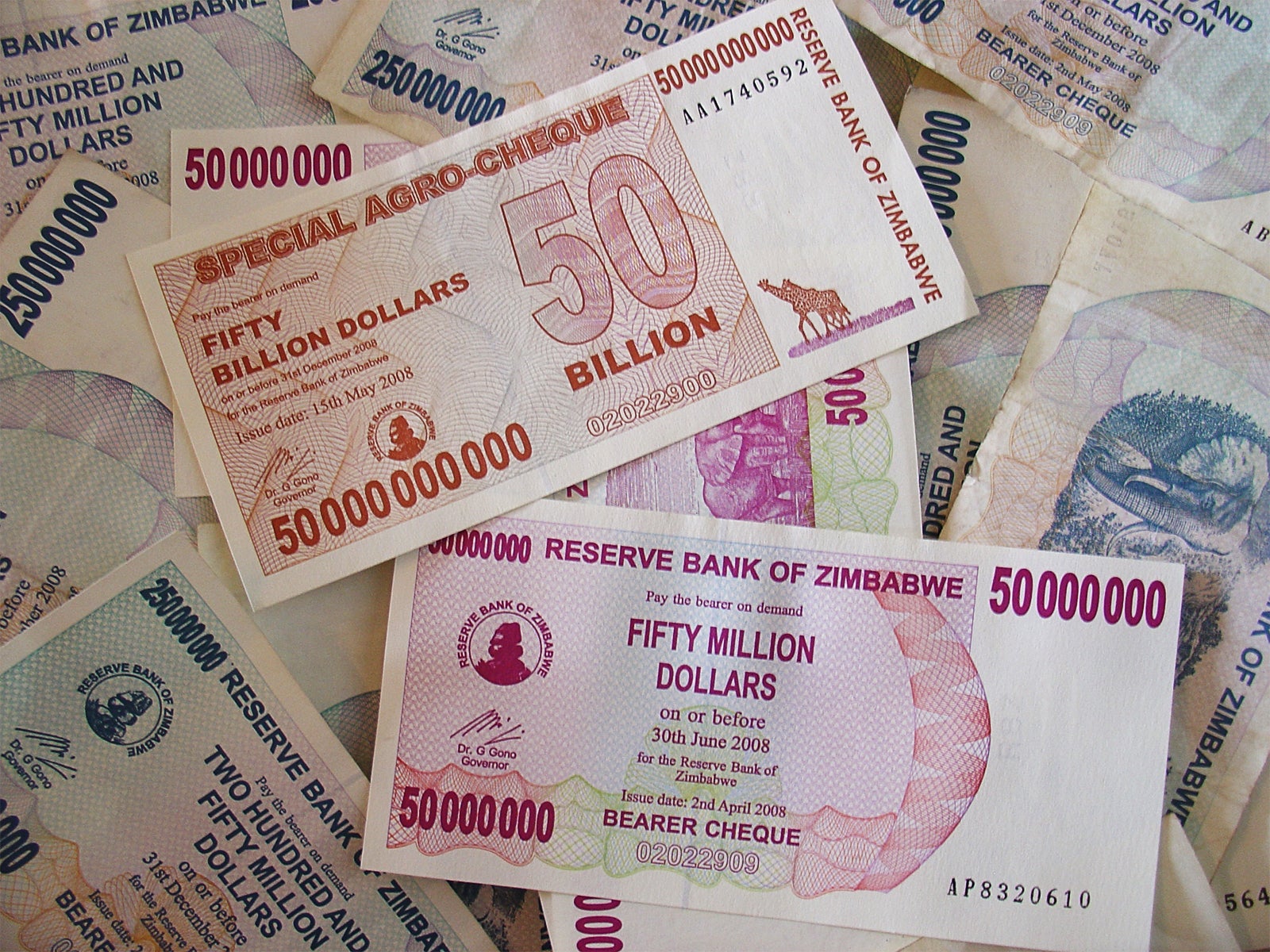Zimbabwe’s central bank is phasing out its massively inflated local currency and is moving to adopt the US dollar.
From Monday residents will be able to exchange bank accounts of up to one hundred and seventy five quadrillion Zimbabwean dollars ($175,000,000,000,000,000) for five US dollars. ($5)
Accounts with higher balances will be exchanged at a rate of thirty five quadrillion ($35,000,000,000,000,000) Zimbabwean dollar per US dollar ($1).
The transitional exchange period lasts until the end of September.
US dollars are already in widespread unofficial use in the country, as they are in large parts of the African continent.
The country officially stopped printing the Zimbabwean Dollar in 2009 after a period of inflation which hit billions of per cent a year.
The national currency has remained in informal use since then, however.
“The decommissioning of the Zimbabwean dollar has … been pending and long outstanding since 2009,” Zimbabwean central bank governor John Mangudya was reported as saying by financial news service Bloomberg.
“We cannot have two legal currency systems. We need therefore to safeguard the integrity of the multiple-currency system or dollarization in Zimbabwe.”
Zimbabwe has long suffered from hyperinflation of its currency, initially triggered by the government printing money to finance overseas operations.
The currency’s crisis has been self-perpetuating, however, with the country’s population lacking any confidence that their money will be worth anything the next day and prices rising to compensate.
The government has tried to restrain inflation by using price controls but this was not effective.
Businesses were initially licenced on a regulated basis to use foreign currencies but this provision has since been extended.

Join our commenting forum
Join thought-provoking conversations, follow other Independent readers and see their replies
Comments